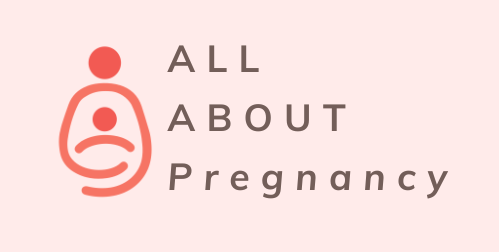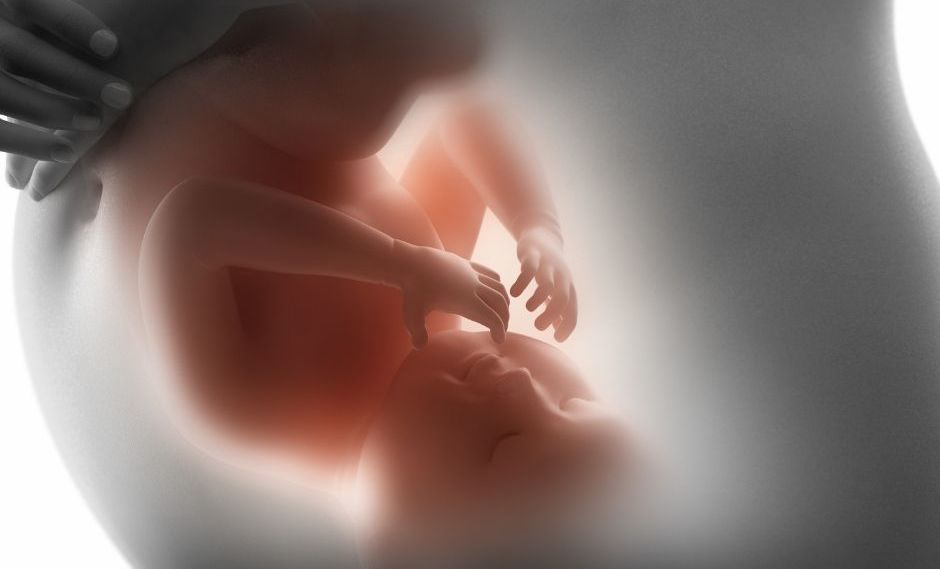Non-Invasive Prenatal Test (NIPT)
The Harmony
Scan + Blood test
Option of additional consultation with Dr. Bamfo, Fetal Medicine Specialist
From £495
The Aster Clinic offers the Harmony NIPT Test for:
Down’s syndrome (T21)
Edwards syndrome (T18)
Patau syndrome (T13)
Fetal sexing
Sex chromosome conditions (optional)
The Harmony test (NIPT) is currently the most advanced non-invasive pregnancy screening test for parents that wish to screen for Down’s syndrome (Trisomy 21), Edward's syndrome (Trisomy 18) or Patau’s syndrome (Trisomy 13).
Using a DNA-based technology, the Harmony prenatal test has been shown to identify more than 99% of pregnancies with Down syndrome. It is a non-invasive test
SOPHISTICATED, ACCURATE, RELIABLE
The appointment is around 40 minute appointment. You will get a full report and a photo. Results can be from 5 working days but can take up to 2 weeks.
The test is processed by The Doctors Laboratory
More about NIPT - The Harmony™ Prenatal Test
DNA from the fetus circulates in the mother’s blood. Cell-free DNA (cfDNA) results from the natural breakdown of fetal cells (presumed to be mostly placental) and clears from the maternal system within hours of giving birth.
During a pregnancy, cfDNA can be tested to give the most accurate screening approach in estimating the risk of a fetus having a common chromosome condition sometimes called a trisomy. This occurs when there are three copies of a particular chromosome instead of the expected two. The test looks to detect the following conditions:
Trisomy 21 is the most common trisomy at the time of birth. Also called Down syndrome, it is associated with moderate to severe intellectual disabilities and may also lead to digestive disease, congenital heart defects and other malformations.
Trisomy 18 (Edwards syndrome) and Trisomy 13 (Patau syndrome) are associated with a high rate of miscarriage. These babies are born with severe brain abnormalities and often have congenital heart defects as well as other birth defects. Most affected individuals die before or soon after birth, and very few survive beyond the first year of life.
Sex chromosome conditions occur when there is a missing, extra, or incomplete copy of the X or Y chromosomes. The Harmony test with sex chromosome aneuploidy panel option can assess risk for XXX, XYY, XXYY, XXY (Klinefelter syndrome), and a missing X chromosome in a girl (Turner syndrome). You are advised to discuss screening for sex chromosome abnormalities or aneuploidies (SCA) with your obstetrician or healthcare professional or genetic counsellor.
An option is also available to look for Turner syndrome only (and not the other sex chromosome conditions). If the mother is interested in having this optional testing, she should talk with her healthcare provider to determine if it is right for her. This option is not available for twin pregnancies.
Fetal sex – So you know whether your baby is male or female (also available with twins)
CLICK ON QUESTIONS BELOW FOR MORE INFORMATION
The testing is non-invasive: it involves taking a blood sample from the mother. The pregnancy is not put at risk of miscarriage, or from other adverse outcomes that are associated with invasive testing procedures such as amniocentesis.
A ‘high probability’ result is indicative of a high probability for a trisomy. In singleton pregnancies, the test identifies more than 99% of fetuses with trisomy 21, 97% of fetuses with trisomy 18, 94% of fetuses with trisomy 13, and 96% of fetuses with Turner syndrome. X and Y analysis provides >99% accuracy for fetal sex. Accuracy for detecting other sex chromosome anomalies varies by condition.
After the test, less than 1% of women need to have a CVS or an amniocentesis procedure.
The Harmony test is considered a prenatal screening test, not a diagnostic test. So if the test results show there is a high risk of the fetus having trisomy 21, 18, 13 or a sex chromosome condition, it does not mean that the fetus definitely has one of these conditions – although it is highly likely. For this reason, in the event of a ‘high risk’ (or positive) result, follow-up testing by an invasive procedure is recommended.
In the same way, if the test results show a ‘low probability’ of the fetus having trisomy 21, 18, 13 or a sex chromosome condition, it is unlikely that the fetus has one of these conditions. However, there is a very small risk that not all trisomic fetuses will be detected.
The Harmony test can be ordered by healthcare professionals for women with pregnancies of at least 10 weeks’ gestational age. This test can be requested for any singleton or twin pregnancy, including those conceived naturally or by IVF using the patient’s own egg or a donor egg. Note that, in twin pregnancies, sex chromosome (X and Y) analysis can determine fetal sex but not sex chromosome conditions. The Harmony test also does not assess risk for mosaicism, partial trisomies or translocations.
Results will be ready in approximately 3-5 days. Women still can have their 12-week scan for a detailed examination of the fetal anatomy, including measurement of nuchal translucency, nasal bone and other important factors. In this visit, patients can discuss the DNA and ultrasound results with their obstetricians.
On the basis of the NIPT result and the ultrasound findings, a patient can decide whether she wants to have an invasive procedure (for example, CVS or amniocentesis).
There needs to be enough fetal DNA in the maternal blood to be able to provide a result. If there is insufficient fetal DNA in the sample (which occurs in 3% of cases), another blood sample from the mother may be required. This will be processed in the laboratory at no extra charge.
Once the mother has taken an independent personal decision that she wants to have the NIPT performed, she will be asked to sign a consent form and her blood sample can be taken from a vein in her arm.
Her sample and completed request form need to be sent to TDL Genetics, where the Harmony test is performed on the DNA extracted from her blood sample.
The Harmony test does not provide information on mosaicism, partial trisomies or translocations, or other rare chromosomal abnormalities. If the ultrasound scan shows a high nuchal translucency or other major physical defects such as brain abnormalities, heart abnormalities, the risk for some rare chromosomal defects may be high. In such cases, the mother may choose to have a CVS or an amniocentesis.
The non-invasive prenatal test does not provide information on other physical defects such as spina bifida, or information on fetal growth. It is therefore advisable that the mother has all the usual ultrasound scans during her pregnancy.
Samples must be taken in special tubes provided by the laboratory. These samples must not be refrigerated, but stored at ambient temperature protected by the gel packs provided. The lab must receive the samples within 7 days to allow testing to proceed.
If you are pregnant and wish to have screening or it has not been possible to do the standard NHS test or missed your combined or quadruple test then the Harmony test would be available if you wish.
It can also provide more information whilst deciding on an option of an invasive test.
It is important to note that The Harmony™ Prenatal Test does not replace diagnostic tests such as amniocentesis and chorionic villus sample as those tests are 100% detection. You would still have to consider these to exclude a chromosomal condition. If you chose the Harmony test in this situation your obstetrician/fetal medicine doctor or midwife should be aware and have discussed this with you. The Harmony test does not exclude structural conditions and has limitations if the fetus has a structural anomaly.
Before booking an appointment, please ensure that you have discussed the Harmony NIPT Test with your doctor or midwife and understood all the implications of the test. This is important as your Healthcare professional would have to interpret and manage any results in the context of your medical and family history. They are also aware of your medical history so if there are any concerns or you are taking medications that may interfere with blood tests, they would be able to inform you. You must be at least 18 years old. You will be contacted by telephone when the results are available. The results will be emailed to you.
We will refer you to your local hospital if the result shows a high probability result.
What will the results show?
The result may show a low probability or high probability result. A low probability risk means it is unlikely that the baby has Downs syndrome, Edwards Syndrome or Patau’s syndrome.
Any screening has a risk of a ‘false negative’ or being told the risk is low when it is high. However the risk of this happening with the Harmony Prenatal Test is much lower than with conventional Down screening.
If the Harmony test result is high probability, you will need to be referred to your local Fetal Medicine Unit for further counselling and possible diagnostic test (CVS or amniocentesis). We will refer you to your local Fetal Medicine Unit.
We advise you give your result to your obstetrician/healthcare provider or midwife - this is important so that the report will be interpreted by them as they will have full knowledge of your clinical history and family history and arrange appropriate fetal medicine referral if required
Inconclusive NIPT Results
Inconclusive results can occur if there is not enough fetal DNA/low fetal fraction
First inform you healthcare provider and we would recommend you discuss your screening options with them
Repeat sample if you wish after discussing it with your doctor
If the second sample is inconclusive, we advise you inform your doctor and we will refer you to your midwife/doctor to discuss your screening options and for further management.
The harmony test also offers the option of screening for sex chromosome abnormalities or aneuploidies (SCA).
Monosomy X – Also called Turner syndrome, a condition where a female is missing an X chromosome, and as a result, may have heart, endocrine, and learning problems
Sex Chromosome Aneuploidy – Differences in the number of X and Y chromosomes which can result in certain learning and/or behavioral challenges in addition to other health issues.
NIPT screening for these are not offered by standard NHS screening tests and evidence for clinical use and management pathways is not Robust or clear. If you chose to have these you may have to have private genetic counselling or private management outside of the NHS. There is no clear knowledge on how good these are or what the results could mean or how to manage the results. This could create uncertainty or lead to additional invasive testing.
For more information, please see TDL and
Do I need to have any other tests?
The Harmony Prenatal Test does not provide information on other rare chromosomal abnormalities. If structural abnormalities are found at a later stage of pregnancy the risk for chromosomal abnormality will need to be reviewed as it may be higher. We always recommend having an ultrasound scans at 11-13 weeks and at 20-22 weeks to examine the fetal anatomy.
By having the harmony test at the All About Pregnancy Clinic, it is understood that you have been fully informed prior to attending the clinic.
Please note that if an ultrasound scan is performed but we do not proceed to the NIPT or there is no result for the NIPT, the fee for the viability scan will remain.
Inconclusive Gender Results
First inform you healthcare provider so that this is interpreted in the context of your medical history and pregnancy
We can book a gender scan at 16 weeks if you wish
Patients who have received bone marrow or organ transplants or those who have metastatic cancer are not eligible for the Harmony Prenatal Test.
The Harmony Prenatal Test is not validated for use for patients with:
History of or active malignancy
Pregnancy with fetal demise
Pregnancy with more than two fetuses
History of bone marrow or organ transplants
Mosaicism, partial chromosome aneuploidy, triploidy, translocations, maternal aneuploidy
Women under the age of 18.
Women over the age of 48 can not have the Harmony test
The Harmony test does not detect neural tube defects. Certain rare biological conditions may also affect the accuracy of the test.
For twin pregnancies, HIGH PROBABILITY test results apply to at least one fetus; male test results apply to one or both fetuses; female test results apply to both fetuses.
Due to the limitations of the test, inaccurate results are possible.
Non-Invasive Prenatal Testing (NIPT) Dunstable Luton - Bedfordshire Hertfordshire Buckinghamshire







